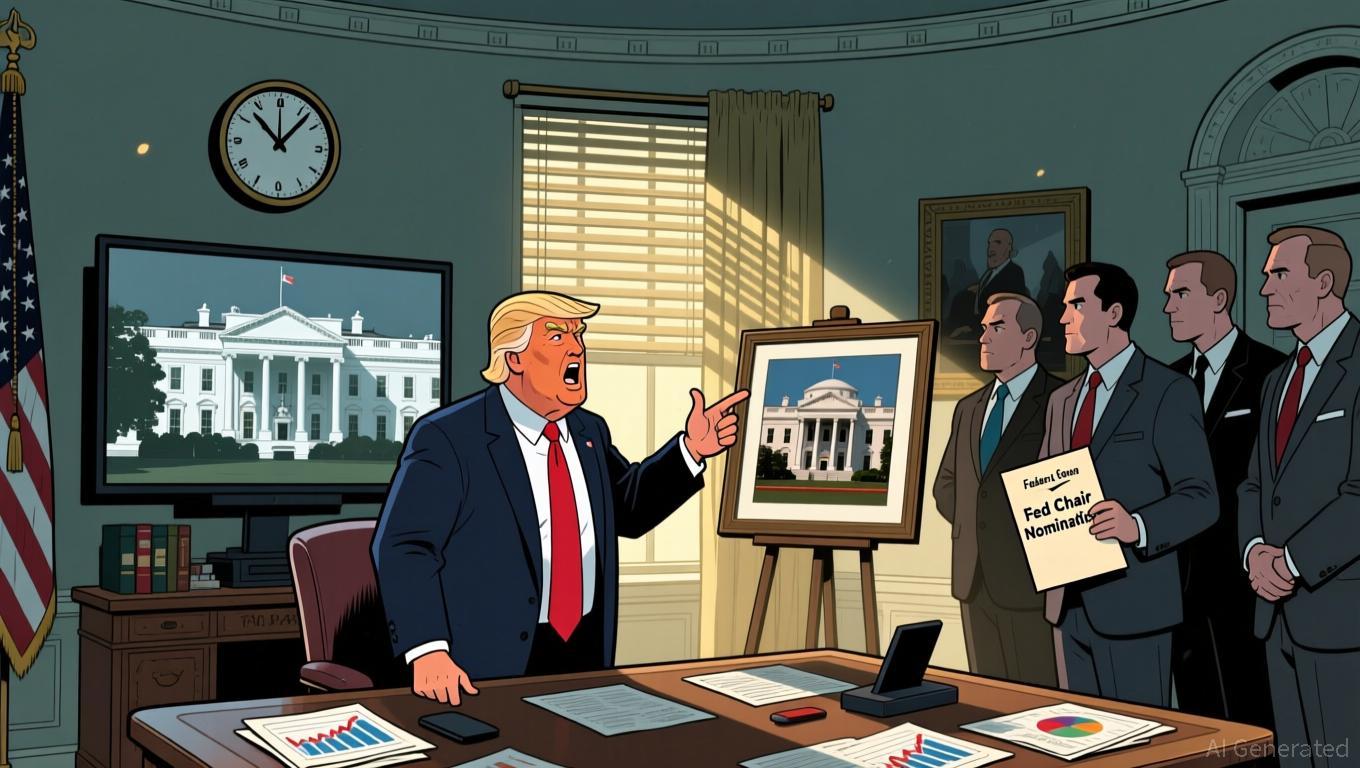Mexico Thwarts U.S. Cartel Raids, Cites 1848 Lesson on National Sovereignty
- Mexico's President Sheinbaum rejects Trump's cartel strike proposal, invoking 1848 sovereignty lesson to defend national autonomy. - Tensions escalate as Mexico removes U.S. contractors' "Restricted Area" signs near Rio Grande, citing border disputes and environmental concerns. - Trump's hardline drug rhetoric clashes with Mexico's sovereignty stance, highlighting strained U.S.-Mexico relations over border security and governance. - Sheinbaum balances U.S. cooperation with sovereignty defense, while Trum
On Tuesday, Mexico's President Claudia Sheinbaum strongly dismissed U.S. President Donald Trump's suggestion to launch military operations against drug cartels within Mexico, firmly upholding the country's sovereignty and cautioning against any outside interference. Her remarks followed Trump's comments made during a press event on Monday, where he suggested the U.S. might "do whatever is necessary" to curb the movement of illegal drugs into the country, including possible cross-border actions. "That will not happen," Sheinbaum declared, reaffirming that her administration would not allow foreign troops to operate inside Mexico.
Trump's remarks, which repeated earlier conversations with Mexican authorities, were quickly met with resistance from Sheinbaum, who stressed that while cooperation on intelligence is acceptable, "we act within our own borders." Later, the U.S. Embassy in Mexico stated that Secretary of State Marco Rubio had assured Mexico that Washington would not act alone, but the episode highlighted growing friction over border security and anti-drug efforts. Trump, who has frequently criticized Mexico's approach to cartel violence, claimed that U.S. monitoring of drug routes is "under intense surveillance" and that forceful action could "save millions of lives."
This exchange took place during another diplomatic dispute involving U.S. contractors who placed "Restricted Area" signs on a beach near the Rio Grande's mouth, which Mexico's navy later removed after finding they were on Mexican land. Sheinbaum mentioned that the International Boundary and Water Commission, the joint agency overseeing the U.S.-Mexico border, was investigating the situation. The Pentagon explained that the signs were intended to mark "National Defense Area III," attributing the confusion to changes in the river's course and landscape. The site is close to SpaceX's Starbase, which has faced scrutiny from Mexican authorities over environmental and cross-border issues.

This confrontation highlights broader geopolitical tensions, including Trump's controversial proposal to rename the Gulf of Mexico as the "Gulf of America" and his administration's strict immigration enforcement, such as recent operations in Charlotte, North Carolina, that led to 81 detentions
Disclaimer: The content of this article solely reflects the author's opinion and does not represent the platform in any capacity. This article is not intended to serve as a reference for making investment decisions.
You may also like
Trump Faces a Fed Chair Conundrum: Swift Rate Reductions or Maintaining Trust?
- Trump pledges to replace Fed Chair Powell by Christmas, but prediction markets assign 44% chance of delay into 2026. - Shortlisted candidates (Bessent, Hassett, Waller, Bowman, Rieder) all favor faster rate cuts, contrasting Powell's cautious approach. - Market skepticism grows as Trump privately complains about selection delays, despite public confidence in removing Powell. - Next Fed chair must balance Trump's demand for aggressive rate cuts with maintaining central bank credibility and market trust.

Brazil's Plan to Tax Cryptocurrency Ignites Debate Over Regulation and Investor Protections
- Brazil plans to tax cross-border crypto transfers via IOF expansion, targeting $30B annual revenue loss from unregulated stablecoin flows by 2025. - Stablecoins like USDT , dominating 2/3 of Brazil's crypto volume, face stricter forex rules amid concerns over money laundering and informal currency exchange. - Lawmakers clash over crypto policies: one bill seeks tax exemptions for long-term investors, while another proposes court powers to confiscate crypto linked to cybercrime. - The government's dual st

Bitcoin Updates: UAE’s Holdings in Bitcoin Triple as the Gulf Region Adopts Digital Gold
- Abu Dhabi's ADIC and Mubadala acquired 16M shares in BlackRock's IBIT ETF, tripling ADIC's stake to $518M, positioning UAE as a top Bitcoin holder via ETFs. - The investment occurred before a 20% Bitcoin price drop, with ADIC emphasizing Bitcoin's role as a "digital gold" for portfolio diversification. - UAE's strategy aligns with Gulf trends, including Dubai's Digital Dirham and Saudi Arabia's blockchain partnerships, as sovereign funds increasingly allocate to crypto assets. - Despite institutional int

Evaluating the Drivers and Reliability Behind PENGU’s Recent Rapid Price Increases
- PENGU's 12.8% 24-hour surge to $0.016 is driven by Bitcoin's rebound and NFT ecosystem liquidity spikes. - Proposed PENGU ETF combining tokens with NFTs could attract institutional capital amid 2025 regulatory clarity trends. - On-chain data reveals diverging signals: price gains vs. 33% retracement, bearish MACD, and increased exchange outflows. - Niche tokens like PENGU face liquidity risks despite macro optimism , with $202M 24-hour volume far below major ETF benchmarks. - Sustained PENGU growth requi